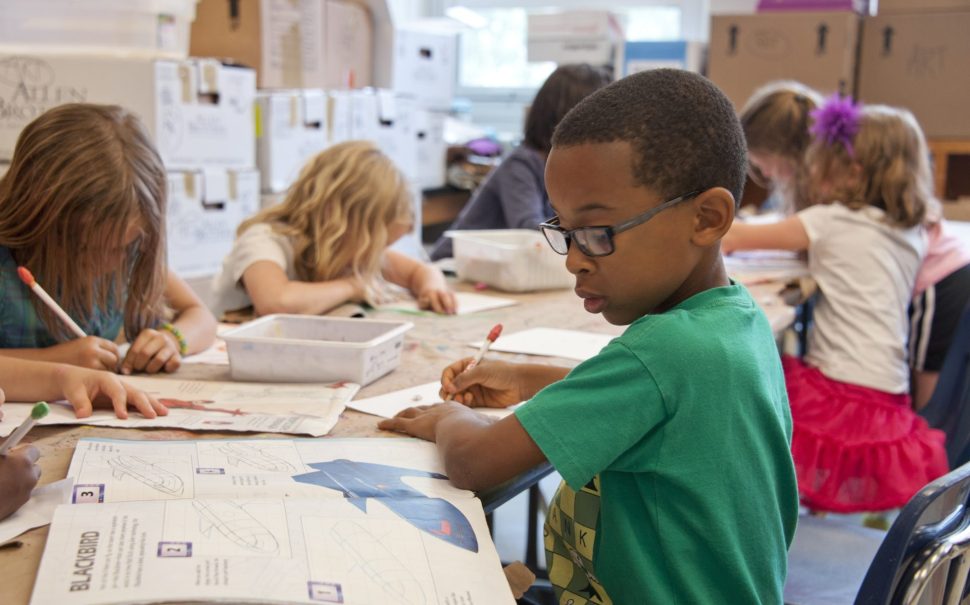The long-term effect of more than two years of Covid-19 on children is unknown, but many youths have been referred by their GP to a mental health specialist in that timeframe.
Socially, children were forced to talk to their friends and classmates online, either by social media or text messages and few actually picked up a phone and had an actual conversation with their friends.
Younger children missed out on essential verbal interaction and key language development and older children missed out on so many important social and academic milestones, such as school discos, school proms, field trips, sitting GCSE exams and the euphoria of leaving school and going back to pick up exam results.
The pandemic assured that many of those milestones were missed.
The London borough of Hackney has a reputation for excellent schools and mental health services alike, and two senior school leaders and a child psychiatrist spoke to South West Londoner about the consequences of the last couple of years on children.
For those children in east London suffering from mental health problems related to the pandemic, the East London Foundation Trust is at the forefront of Children’s mental health service, with Hackney having a strong reputation for seeing young referrals quickly.
Consultant Psychiatrist Dr Cathy Lavelle of Hackney and City CAMHS said: “The sharp increase in demand for mental health support for children and young people is something being experienced by CAMHS services nationwide.
“It is widely recognised that the effects of the pandemic have been highly detrimental to the mental health of many young people, and as such, referrals to CAMHS services have increased, but the trend in increased referrals predates this.
“We would like to encourage any young person or concerned family member worried about their child struggling with mental health to contact their GP or other health professional so that a CAMHS referral can be made as quickly as possible, and the appropriate help provided.
“When a young person is in immediate danger owing to an urgent mental health crisis, we have trained staff available to provide support 24/7 via our freephone telephone crisis support lines, details of which can be found here: https://camhs.elft.nhs.uk/Crisis-Support.”
Louis Harris, Head of Lauriston School in Hackney, admits that the pandemic has been awful in so many ways and has significantly affected children.
He said: “It greatly affected children and in nursery and early years, speech and language were affected, oracy and learning through play.
“The lack of social interaction and learning through play meant that for many younger pupils they had missed out on important developmental opportunities.
“The teaching of Phonics, for example, is a specialist skill so expecting parents to be able to support with this was not realistic or fair.
“In Reception and Year 1 we have seen an increased need for specialist speech and language interventions.
On the topic of behaviour issues, Mr Harris added: “Behaviour in children has been more challenging nationally.
“Some children were struggling with their behaviour before and the pandemic just heightened that and the SLT (Senior leadership team) had meetings to discuss this and ensure a smooth transition back to school for these pupils.
“The vast majority of children returned to school very positively and through quality first teaching have made good progress this year.”
Mr Harris concluded: “Some pupils still need interventions and support and some vulnerable pupils will find it very hard to fully catch up.”
In east London, a Vice Principal who agreed to talk to South West Londoner on condition of anonymity, said that the pandemic had definitely affected older children significantly.
“During the first pandemic, we delivered the curriculum and made it work under difficult circumstances but with the second lockdown, we were better.
“We knew what we were doing and had better systems in place.
“We delivered lessons using an asynchronous approach, rather than live lessons.
“We were also able to make phone calls to parents and carers of students who didn’t complete the work, as well as weekly ‘check in’ calls from tutors.”
“With behaviour, students who have been affected the most are those in years 8 and 9.
“Unfortunately, those students who benefit most from the structure of a school day are those who have lost out the most.
“They are finding it the hardest to adjust to being back at school.
“Of course students’ education was affected by the pandemic.”
It will take a generation to know the effect the pandemic has had on the country’s children.
Anyone who is concerned about their child’s mental health should contact their GP or get in touch with CAMHS here.
If your child is experiencing a crisis, please call 999 or go to A&E.





